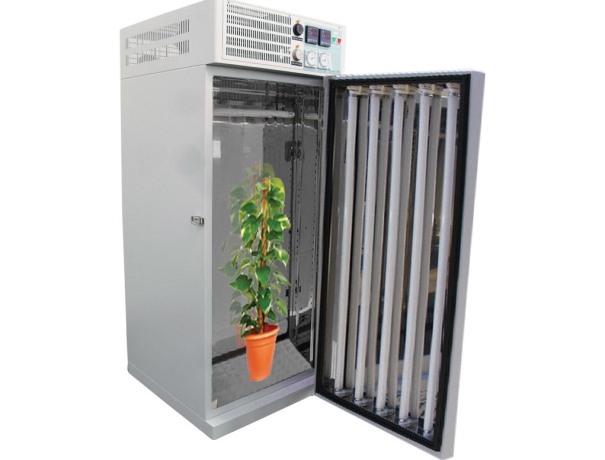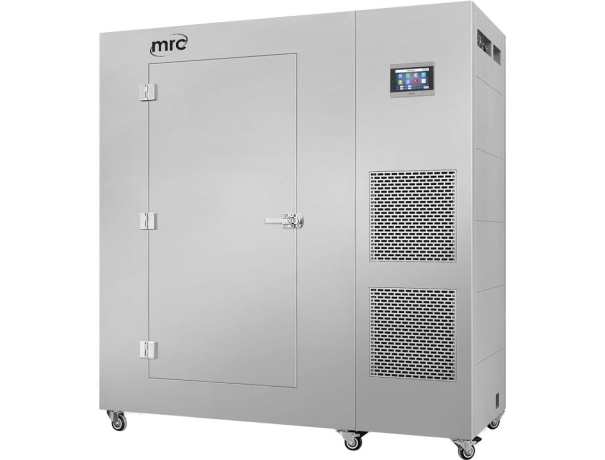Understanding the intricate components of a plant growth incubator is essential for appreciating its functionality. Temperature control, humidity regulation, lighting systems, and nutrient delivery mechanisms play pivotal roles in creating the perfect environment for plants to thrive.
Benefits of Using Plant Growth Incubators
The advantages of employing plant growth incubators are multifold. From accelerated growth cycles to disease prevention, these systems offer a range of benefits that contribute to the overall improvement of crop cultivation.
Applications in Agriculture
Plant growth incubators find diverse applications in agriculture. They play a crucial role in crop research, enabling sustainable farming practices and addressing global food security challenges.
Technological Advancements
The integration of artificial intelligence in plant growth systems is a game-changer. Remote monitoring, energy-efficient designs, and other technological advancements are propelling the effectiveness of these incubators.

What are Plant Growth Incubators
A Plant Growth Incubator is a controlled environment designed to provide optimal conditions for the growth and development of plants. These incubators are typically used in scientific research, agricultural experiments, and plant breeding programs. The controlled environment allows researchers to manipulate various factors such as temperature, humidity, light, and nutrient levels to study plant growth under specific conditions.
Key features of plant growth incubators may include:
- Temperature Control: The ability to set and maintain specific temperatures to simulate different environmental conditions.
- Humidity Control: Regulation of humidity levels to create conditions suitable for particular plant species.
- Lighting Systems: Adjustable lighting systems that mimic natural sunlight or provide specific light spectra for different stages of plant growth.
- Ventilation: Proper airflow and ventilation systems to ensure a healthy exchange of gases and prevent the buildup of heat.
- Nutrient Delivery: Some incubators may have systems for delivering precise amounts of nutrients to the plants.
- Monitoring and Data Collection: Sensors and monitoring systems to track environmental parameters and collect data on plant growth.
what is a laboratory plant growth chamber?
A Laboratory Plant Growth Chamber is a controlled environment designed specifically for cultivating and studying plants under precise conditions within a laboratory setting. This chamber provides researchers with the ability to manipulate and control various environmental factors to create optimal conditions for plant growth and experimentation.

Uses of the plant growth chamber
Plant growth chambers are versatile tools used in various scientific and agricultural applications to create controlled environments for the cultivation and study of plants. Here are some common uses of plant Growth Chambers:
- Plant Biology Research: used in research to study various aspects of plant biology, including growth patterns, development, metabolism, and responses to environmental factors.
- Genetics and Breeding: Researchers use growth chambers to conduct experiments on plant genetics and breeding. Controlled conditions allow for the study of inherited traits, hybridization, and the development of new plant varieties.
- Climate Change Studies: IT helps scientists simulate different climate scenarios to understand how plants respond to changes in temperature, humidity, and atmospheric conditions. This is crucial for studying the potential impacts of climate change on plant ecosystems.
- Photoperiod Studies: Growth chambers with adjustable lighting systems are used to investigate the effects of different day lengths and light conditions on plant growth and flowering. This is important for understanding the photoperiodic responses of plants.
- Pathogen and Stress Studies: Researchers can create controlled stress conditions to study plant responses to various stressors, such as drought, salinity, and pathogen infections. This helps in developing strategies for improving plant resilience.
- Agricultural Research: Plant growth chambers are valuable in agricultural research to test the effects of different growing conditions on crop plants. This information can be used to optimize agricultural practices and improve crop yields.
- Teaching and Education: Plant growth chambers serve as educational tools in academic settings. They allow students to conduct experiments and learn about plant biology in a controlled and reproducible environment.
- Seed Germination Studies: It provide precise conditions for studying seed germination, including temperature, humidity, and light requirements. This information is valuable for optimizing seed germination protocols.
- Phytotoxicity Testing: Researchers use plant growth chambers to assess the effects of chemicals or pollutants on plant growth. This is important for evaluating the potential impact of agrochemicals or environmental contaminants.
- Space Agriculture: Used in space research to study how plants grow in microgravity conditions. This has implications for future space missions and the development of sustainable life support systems.
Buying Plant Growth Incubators
MRC provides a variety of solutions for agriculture such as plant growth chambers